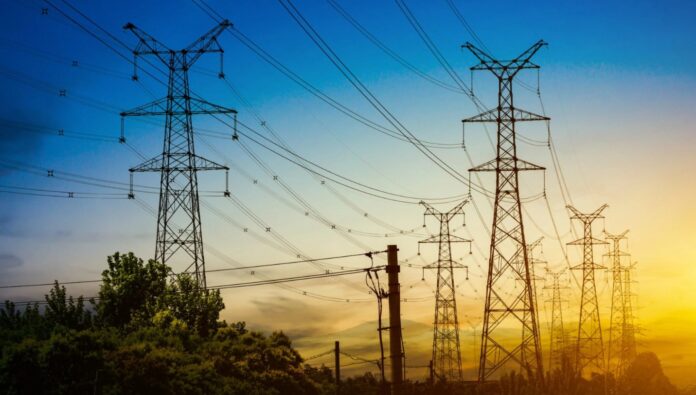Looking to lower your business energy bills? You’re in the right place. Learn what commercial energy Rates are, how they work, and how you can pay less.
What Are Commercial Energy Rates?
Commercial energy rates are the prices that businesses pay for electricity and gas. They’re different from what homes pay. Most businesses use more power, so their prices are set differently.
These prices are not always the same. They can change based on:
- How much energy your business uses
- The time of day you use the most
- Where your business is located
- The type of contract you choose
Big businesses often pay less per unit than small shops. It’s kind of like buying in bulk at a store.
Saving on energy can make a big difference. For example, a small café could save up to $1,500 a year just by switching to a better energy plan.
Let’s walk through how this works and how you can cut your costs.
Why Do Businesses Get Different Energy Rates?
Businesses use more energy than homes. Think lights, fridges, computers, and machines all running at once. Because of that, energy companies treat them differently.
Let’s say you run a bakery. You work early mornings and use ovens all the time. That means your peak energy use is different than, say, a law office.
Energy companies look at things like:
- Peak usage hours
- Energy spikes (like when ovens kick on)
- Seasonal changes (heating in winter, cooling in summer)
All these bits change the rate you pay.
Fixed vs. Variable Energy Rates
Businesses usually choose between two main types of energy rates:
Fixed Rates
You lock in a price for one, two, or even three years. That means you always know what you’ll pay each month.
This is good if you like to plan ahead. Even if energy prices go up, your price stays the same.
For example:
If you sign a fixed rate contract of 10 cents per kilowatt-hour, you will always pay that, even if market rates go up to 12 cents.
Variable Rates
The price can change month to month. If market prices go down, you save money. But if prices go up, you pay more.
It’s kind of like buying fresh fruit. Prices change with the season.
You might choose variable rates if your business can handle price changes.
Real-World Example: How a Gym Saved Thousands
Let’s look at Anytime Fitness, a gym in Texas.
They were paying high energy bills—about $3,000 a month.
After checking their energy plan, they found they were on a variable rate contract. It made planning hard.
They switched to a 2-year fixed rate with a new provider. Their new monthly bill? $2,300.
That’s $8,400 saved in one year.
How to Compare Commercial Energy Rates
Here’s what to check when looking at energy quotes:
- Rate per kilowatt-hour (kWh) – This is the big number.
- Contract length – 1 year? 2 years? Something else?
- Early exit fees – Will you pay if you leave the plan early?
- Extra costs – Any hidden fees or charges?
A smart move is to get quotes from at least 3 providers. Some sites will even compare them for you.
Pro tip: Make sure they’re licensed to sell energy in your state.
Fun Stat: Small Businesses Overpay by $7 Billion a Year
According to the U.S. Department of Energy, small businesses in America overpay on energy by more than $7 billion each year.
Most of the time, it’s simply because they didn’t shop around.
Imagine what your business could do with that extra cash—new equipment, more staff, even a fun office party.
When Should You Switch Energy Suppliers?
The best time to switch is when:
- Your contract is about to end (check your renewal date)
- Energy rates are low (market dips happen often)
- Your usage has changed (like growing your business or adding new equipment)
Don’t wait until your contract auto-renews. Many companies bump up the rate if you don’t do anything.
States Where You Can Choose Your Energy Supplier
Not all states let you pick your energy provider. Here are some that do:
- Texas
- Pennsylvania
- Illinois
- Ohio
- New York
- California (partially)
This is called a deregulated energy market. If you’re in one of these states, you have more power to choose and save.
Tips to Lower Your Commercial Energy Costs Even More
Here are some easy steps you can take today:
Upgrade Your Equipment
Old machines use more power. Switching to energy-efficient tools can cut your bill by 20%.
Use Smart Thermostats
Don’t blast the A/C all day. Smart thermostats can learn when to heat or cool based on when people are in.
Many smart systems pay for themselves in under a year.
Do a Free Energy Audit
Some energy providers offer free audits. They’ll walk through your business and show you where you’re wasting power.
One small pizza shop in New Jersey saved $800 a year just by changing lights and sealing air leaks.
Watch Out for Scams
Be careful of companies that promise “free energy” or cash rewards just for switching. Always read the fine print.
Check reviews. Make sure the provider is certified by your state.
A good deal is simple and clear: a fair rate, a fair contract, and no sneaky fees.
The Future of Commercial Energy
New tech is changing how we use and buy energy. Solar panels, smart meters, and energy storage are all being used more.
Some businesses are even selling energy back to the grid!
By staying informed, your business can save money today and prepare for tomorrow.

